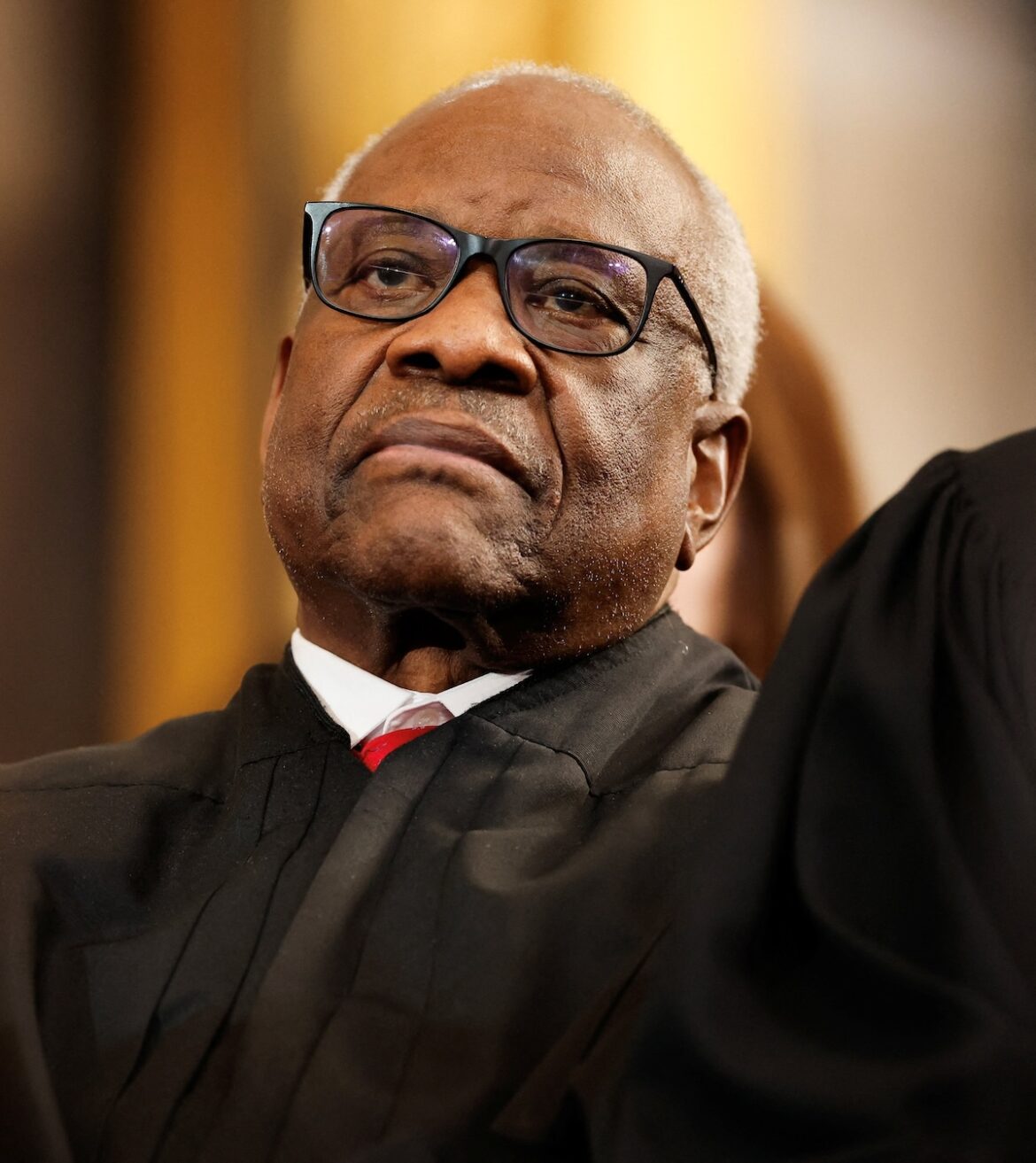WASHINGTON (OSV News) — U.S. Supreme Court Justice Clarence Thomas discussed topics including originalism and his own Catholic faith during remarks Sept. 25 at The Catholic University of America Columbus School of Law.
In remarks about the concept of “stare decisis”, or the legal doctrine where courts must follow precedent, Thomas said courts should respect precedent, adding, “Precedent should be respectful of our legal tradition and our country and our laws, and be based on something, not just something somebody wrapped up and others went along with.”
Legal precedent and interpretation of law featured in talk
When the high court issued its 2022 decision in Dobbs v. Jackson Women’s Health Organization, Thomas sparked controversy by arguing in a concurring opinion that the high court “should reconsider all of this Court’s substantive due process precedents, including Griswold, Lawrence, and Obergefell,” landmark cases over contraception, same-sex relationships and marriage.
In his remarks, Thomas cited the example of Plessy v. Ferguson, a case that upheld segregation laws, which was later overturned by Brown v. Board of Education of Topeka, as an example of a case where precedent alone would not have resulted in a constitutional outcome.
Thomas cited a legal joke about stare decisis, “You apply it rigorously when you want to overrule a prior precedent that you don’t like, but loosely when it’s one of yours.”
“I can’t remember which book that’s in,” he said, but “I don’t think that that is acceptable, right?”
The event, hosted by the school’s Center for the Constitution and the Catholic Intellectual Tradition, was moderated by Jennifer Mascott, an affiliated fellow of CIT who is currently on leave from the school as senior counsel to the president in the White House Counsel’s Office and has been nominated for a seat on the Third Circuit.
During the event, Mascott asked whether the court has become more originalist over the decades during which he has been a member of the court. Thomas said he had no way to measure, but said of an originalist view itself, “the limited authority that I do have comes from Article Three (of the Constitution), and then the basis within that it has to be something that was written and then to interpret it in a way that’s consistent with what the drafters intended, not what I would want it to be.”
Clarence Thomas at CUA: Nun teachers partly inspired his return to Catholicism
Thomas, who is Catholic and was once a seminarian, said he left the church for more than two decades as a younger man, in part because of his frustration with what he saw as the church’s leadership’s failure to stand up to racism and bigotry.
“Bigotry, I cannot stand,” he said.
But, he said, he was eventually drawn back to the church in part because of the example of the nuns who educated him in Savannah, Georgia, where he was raised, and remembering the example of solidarity they showed with their black students.
“They had faith, and they believed, and they lived out this faith,” Thomas said. “Think about the things that they were called. They were called the ‘N word sisters.’ And this is the Savannah of the 1950s and 60s, when things were totally segregated, and yet those nuns never, ever once backed away from us. They were always on our side. They always believed in us. They always made us believe in ourselves,” he said.
Supreme Court justices work together
Thomas spoke highly of many of his current and former colleagues on the court, saying, “I think you can be affected by — deeply by– people that don’t necessarily agree with you.”
Those differences could also relate to those who “don’t share the same hobbies,” he said, adding, “Justice Scalia asked me once, he said he tried to get me to go hunting with him, I told him, ‘I do my hunting at the supermarket.'”
Thomas spoke highly of the late Justice Sandra Day O’Connor, saying she was “truly, in my view, a renaissance woman.”
“She was smart, she grew up on a ranch, she could ride, she could shoot. She was a great athlete, great mother, cook, she was well-traveled,” Thomas said, adding, “You don’t have to always agree with a person to admire a person.”
Law course taught by Clarence Thomas at CUA
Thomas is participating in teaching a course at Catholic Law, he said during his remarks.
He previously taught at George Washington University, but said there was some “unpleasantness” after Dobbs, he said. Students there protested the course he co-taught after the decision.
“We did that for over a decade at GW,” he said in reference to his co-teacher, Judge Gregory E. Maggs.
“And after Dobbs, and we were, I think, we were tolerated,” he said, adding, “we stopped for a couple of years after Dobbs; there was some unpleasantness.”
“And I miss it, to be honest with you,” he said of teaching and why he is doing a course at Catholic Law.
The Supreme Court’s fall term is scheduled to begin Oct. 6.
Kate Scanlon is a national reporter for OSV News covering Washington. Follow her on X @kgscanlon.




